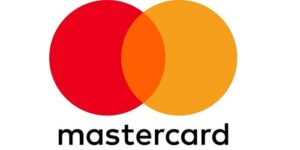Mortgage Brokers Vs Asset Finance Brokers – Know The Difference

Are you looking to strike out on your own as a finance broker? Perhaps you’re part of a big firm and want to leverage your skills direct – and take on the full commissions or fee structures for yourself! There’s a lot of upside to being your own boss and it takes a lot of hard work and commitment. But which way will you go? Mortgage broking or asset finance broking? Here’s a short guide and insight into both – so you can have a clearer picture of which may be right for you.
Mortgage broking
Mortgage broking, as the title suggests, is finding loans for homes or property. You could cover residential property, investment property, commercial or industrial property, focus on owner-occupier finance or even the big end of town, for commercial developments or joint ventures. It’s your job to find high value and low-cost loans for your clients, ensuring they aren’t overleveraged or disadvantaged in any way. You’ll also likely be working closely with conveyancers, property, or commercial lawyers, building inspectors, insurance brokers, and in some cases, land or property developers. You will need to be good at networking and using these networks to produce stellar results for clients.
Asset finance broking
Asset finance refers to loans or leases for major assets such as vehicles, heavy equipment, or other business equipment such as computers, machinery, and fixtures. Asset finance broking can focus on consumer finance such as financing cars, SUVs, or utes. Asset finance can also encompass other vehicles such as caravans, camper trailers, jet skis, boats, motorbikes, and even recreational aircraft. On the commercial side, there are hundreds of different asset classes available, such as furniture, gym equipment, prime movers, heavy machinery, warehousing systems, and more.
As an asset finance broker, you may also offer chattel mortgages or hire purchases, which are commercial asset finance products and are not regulated by the National Consumer Credit Protection Act. You may be working with lawyers, accountants, insurance companies, and directly with business owners in this case. Some asset finance brokers may also add value by tapping into fleet buying discounts through a car buying service for both consumers and businesses. You may also want to offer novated leasing for employees and employers, which is a fringe benefit for employees yet tax neutral.
Working with aggregators
With either type of broking, you’ll need to set up a strong and diverse lending panel to ensure you gain the most value for your clients. This can take time. Some brokers use an aggregation service to grow their business, as it can get you up and running in next to no time. Aggregators are turnkey lending panel solutions for brokers, as it gives you access to a ready-made lending panel made up of leading banks and lenders. Aggregators also provide Customer Relationship Management software (CRMs), marketing support, ongoing professional development, sales and compliance training, as well as regulatory and compliance support. Aggregation also streamlines client applications, as they incorporate new and innovative approval technology such as connecting directly with banks to customer information, check consumer or business credit scores, and accelerate due diligence using Generative AI or Large Language Models.
If you are looking to start a business from scratch and know your broking stuff, you may want to strongly consider aggregation for a leg up on the competition – and to make your business cash flow positive sooner rather than later. The next step is to figure out which type of broking is for you – mortgage broking or asset finance. Both have their ups, downs, and unique rewards!















